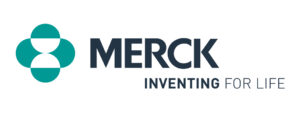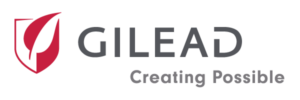Dear lymphoma community,
The worldwide battle against the COVID-19 virus continues. Within Canada, our federal and provincial governments are responding with legislation and guidance to help protect Canadians as well as to provide regular updates on the impact of the virus in Canada. Topics addressed include: vaccines, financial and economic support, travel, your health, limiting the spread, and other daily updates about COVID cases in the country. This information is constantly evolving. Below we have provided links to the federal and provincial/territorial COVID-19 webpages and websites dealing with cancer patient-specific resources related to COVID-19. We recommend that you consult these pages often and follow the guidance provided therein.
**IMPORTANT UPDATES**
Please consult your doctor with any questions with respect to COVID-19 vaccinations and available treatments.
COVID-19 vaccines
For current updates on available vaccinations for COVID-19 please follow this link to the Canadian Immunization Guide on COVID-19 vaccines prepared by the National Advisory Committee on Immunization (NACI) – COVID-19 vaccines: Canadian Immunization Guide – Canada.ca
Treatments for COVID-19
Health Canada has approved several different treatments for COVID-19. Examples include drugs that reduce or stop the virus from multiplying in human cells and drugs that treat the symptoms of COVID-19. Currently approved treatments include:
- Remdesivir (Veklury®)
- Nirmatrelvir and ritonavir (Paxlovid®)
- Tixagevimab and cilgavimab (Evusheld®)
- Tocilizumab (Actemra®)
- Bamlanivimab
- Casirivimab and imdevimab
- Sotrovimab
To learn more about these treatments, speak with your doctor.
Advocacy Efforts
The COVID-19 landscape in Canada is constantly changing with new information from the latest research. Because of the evolving nature of information surrounding COVID-19, different guidelines have been released by the provincial, territorial, and federal governments. Some guidelines take into account new research and provide specific guidance for cancer patients and their treatments, while many guidelines leave questions unanswered. To address challenges faced by the lymphoma community regarding COVID-19 and vaccine access, Lymphoma Canada continues to advocate on behalf of patients and caregivers.
- Many organization advocated for dosing schedules to meet the required clinical trial times and Lymphoma Canada and others advocated for the development of a pan-Canadian strategy for the collection and distribution of research and data on COVID-19 and the vaccine to guide decision-making. Following these efforts, NACI continued with its 4-month dose delay schedule. With recent research published, addressing the safety and immune response in cancer patients, real evidence was provided to counter NACIs decision. Our Scientific Advisory Board felt strongly that continuing our advocacy efforts to address this issue was important. With this information, Scientific Advisors and clinicians affiliated with patient groups added their support. A second follow-up letter was sent on April 1, to Provincial/Territorial Health Ministers, Chief Medical Officers, Premiers, and Public Cancer Agencies, along with Health Canada and NACI about three important challenges facing the lymphoma and cancer community.Access Letter Here
- On April 7, NACI released a statement re-affirming their decision to continue with the 4-month dose delays. However, jurisdictions may choose to shorten the time between the first and second dose for specific populations. Certain provinces such as Ontario and Manitoba have adopted provincial guidelines to ensure normal dosing is scheduled for specific high-risk individuals. It is important to stay up-to-date with your province’s immunization plan as it could change to include your eligibility! After hearing from patients and caregivers about continued advocacy efforts, it was decided that a national awareness campaign was the next best step. Lymphoma Canada along with other patient organizations launced an article in the Globe & Mail that is addressed to the Prime Minister and Provincial/Territorial Health Bodies focused on the continued dose delays for cancer patients. This was published on April 28, 2021.
- Further advocacy efforts were taken in British Columbia, publishing a similar advocacy article in the Victoria Times Colonist on May 12, 2021, alongside in Quebec.
- Lymphoma Canada, in collaboration with CLL Canada and the Lymphoma & Leukemia Society of Canada, have advocated to NACI on revising their definition of immunocompromised to be inclusive of lymphoma and CLL patients that are not on active treatment but are still immunosuppressed. Advocacy efforts began in February 2022 and will continue with NACI and across the provinces.
Important Research Published on the COVID-19 Vaccine in Lymphoma and CLL Patients
The following are important scientific studies published on the safety and efficacy of the COVID-19 vaccines in lymphoma patients. As lymphoma patients were not included in the original vaccine clinical trials, research is currently underway to better understand the immune response in lymphoma subtypes. Few studies have been published thus far.
1.Research published on the efficacy and safety of a booster vaccination with Ad26.COV2.S DNA vector vaccine in haemato-oncological patients without antibody response after double-dose mRNA COVID-19 vaccine.
Reimann P. et al. (February 2022). Efficacy and safety of heterologous booster vaccination with Ad26.COV2.S after BNT162b2 mRNA COVID-19 vaccine in haemato-oncological patients with no antibody response. Br J Haematol, 196(3):577-584. Access article here.
2.Research published on the efficacy of a third mRNA vaccine in CLL patients who did not have a response after the standard 2-dose vaccination regimen.
Herishanu, Y., et al. (February 2022). Efficacy of a third BNT162b2 mRNA COVID-19 vaccine dose in patients with CLL who failed standard 2-dose vaccination. Blood, 139(5):678-685. Access article here.
3.Research published on the efficacy of the mRNA vaccine in immunocompromised individuals (untreated or treated lymphoma and CLL patients) compared to healthy controls.
Bergman, P. et al. (December 2021). Safety and efficacy of the mRNA BNT162b2 vaccine against SARS-CoV-2 in five groups of immunocompromised patients and healthy controls in a prospective open-label clinical trial. EBioMedicine, 74:103705. Access article here.
4.Research published on the efficacy of the third COVID-19 vaccine in hematology and solid cancer patients.
Fendler, A. et al. (December 2021). Immune responses following third COVID-19 vaccination are reduced in patients with hematological malignancies compared to patients with solid cancer. Cancer Cell. Access article here.
5. Research published showing reduced immune response to the COVID-19 mRNA vaccine in hematology patients receiving Rituximab therapy.
Peeters, M. et al. (Oct 2021). Reduced humoral immune response after BNT162b2 coronavirus disease 2019 messenger RNA vaccination in cancer patients under antineoplastic treatment. ESMO Open. 6(5):100274. Access article here.
6. Research published on the antibody response to the COVID-19 vaccine in hematology patients (different subtypes grouped together) and other solid tumour patients.
Benda, M. et al. (August 3, 2021). Serological SARS-Cov-2 antibody response, potential predictive markers and safety of BNT162b2 mRNA COVID-19 vaccine in haematological and oncological patients. Br J Haematol. Access article here.
7.Research confirming that the first dose of both BNT162b2 and AZD1222 vaccine leads to lower production of antibodies against SARS-CoV-2 in patients with Waldenstrom Macroglobulinemia/Chronic Lymphocytic Leukemia/Non-Hodgkin Lymphoma compared to controls of similar age and gender and without malignant disease.
Gavriatopoulou, M. et al. (July 20, 2021). Low neutralizing antibody responses in WM, CLL and NHL patients after the first dose of the BNT162b2 and AZD1222 vaccine. Clin Exp Med., 1–5. Access article here.
8. Research on the antibody response to the COVID-19 vaccine in lymphoma subtypes. Importantly looks at timing of treatment and types of treatment received.
Herzog Tzarvfati, K. et al. (June 29, 2021). BNT162b2 COVID-19 vaccine is significantly less effective in patients with hematologic malignancies. AJH. Access article here.
9. Research showing that COVID-19 vaccine administration can cause vaccine-associated hypermetabolic lymphadenopathy (swelling of your lymph nodes) close to the vaccine site which can mimic progression of disease on PET imaging scans.
- Clinician’s should ask their patient when they received their vaccine(s) when interpreting the results of imaging scans.
Cohen, D., Krauthammer, S.H., Wolf, I. & Even-Sapir, E. (June 2021). Hypermetabolic lymphadenopathy following administration of BNT162b2 mRNA COVID-19 vaccine: incidence assessed by [18F]FDG PET-CT and relevance to study interpretation. Eur J Nucl Med Mol Imaging. Access article here.
10. Research determining the immune response to the COVID-19 vaccine in Chronic Lymphocytic Leukemia patients.
Herishanu, Y. et a. (April 16, 2021). Efficacy of the BNT162b2 mRNA COVID-19 vaccine in patients with chronic lymphocytic leukemia. Blood, 2021011568. Access article here.
11. Study that measured the antibody response to the COVID-19 mRNA vaccines in hematology patients.
Agha, M. et al. (April 7, 2021). Suboptimal response to COVID-19 mRNA vaccines in hematologic malignancies patients. MedRxiv. Access article here.
12. Interim research looking at the immune response to the COVID-19 vaccine in hematological patients.
Monin-Aldama, L. et al. (March 17, 2021). Interim results of the safety and immune-efficacy of 1 versus 2 doses of COVID-19 vaccine BNT162b2 for cancer patients in the context of the UK vaccine priority guidelines. MedRxiv. Access article here.
Resources for Cancer Patients
We suggest you visit these COVID-19 Cancer Specific Resources: All.Can Canada COVID-19 Cancer Patient Support Hub – All.Can (all-can.org)
This website is intended for people in Canada living with cancer, caregivers, their families, and anyone else affected by cancer. It is regularly being updated as new developments, resources, services and assistance relating to COVID-19 and oncology change or become available.
If you are a patient with lymphoma or CLL, please do not hesitate to reach out to us for support at info@lymphoma.ca
Navigation
- Cancer Patient Resources
- COVID-19 and Vaccines Report
- Information for Lymphoma and CLL Patients
- Self Care and Mental Wellness
- How to Protect Yourself
- Federal Resources
- Provincial Resources
INFORMATION FOR LYMPHOMA AND CLL PATIENTS
| Title | Source |
| COVID-19 and Vaccines Report | Lymphoma Canada |
| COVID-19 and Cancer Patients (Webinar Recording) | Canadian Cancer Society |
| COVID-19 Cancer Patient Support | All.Can |
SELF CARE AND MENTAL WELLNESS
| Title | Source |
| Anxiety & Stress Management webinar | Lymphoma Canada |
| Mental Health and the COVID-19 Pandemic | Centre for Addiction and Mental Health |
| Mental health and psychosocial considerations during the COVID-19 outbreak | World Health Organization |
| Self-care Guide | Government of Quebec |
| Coping with Anxiety During the COVID-19 Pandemic | Anxiety Canada |
| How to Meditate | Mindful.org |
| Mental Health Tips for Working from Home | Government of Canada |
| Coronavirus disease and food safety | Government of Canada |
| Resource Hub: Mental health and wellness during the COVID-19 pandemic | Mental Health Commission of Canada |
| BounceBack Ontario free mental health program | Canadian Mental Health Association |
HOW TO PROTECT YOURSELF
| Title | Source |
| Know the Difference: Self-Monitoring, Self-Isolation and Isolation for COVID-19 | Government of Canada |
| When and how to wear medical masks | World Health Organization |
| How to protect yourself from coronavirus when grocery shopping | Consumer Reports |
| Coronavirus disease (COVID-19) advice for the public: Myth busters (WHO) | World Health Organization |
| Caring for family members with COVID-19 | Government of Canada |
FEDERAL RESOURCES
| Title | Source |
| Coronavirus disease (COVID-19) outbreak updates, symptoms, prevention, travel, preparation – Canada.ca | Public Health Agency of Canada |
| Vaccines and treatments for COVID-19: Progress – Canada.ca | COVID-19 Vaccine Information |
| Canadian Immunization Guide: COVID-19 | Government of Canada |
PROVINCIAL RESOURCES
Additional resources are available as follows:
World Health Organization: Coronavirus (who.int)








